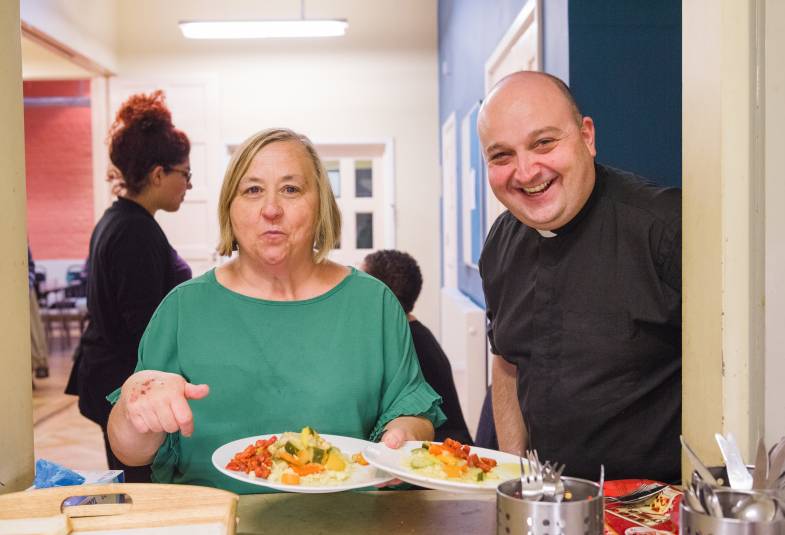
The tips have been supplied with the kind support of Kathryn Caswell, Major Donor Manager at The Share Foundation.
Take time to plan before you do anything else
Assign two or three people who can help to lead a fundraising campaign. Their enthusiasm will help them to lead by example and encourage others, not only those in the immediate church circle but also family and friends, to get involved. Brainstorm potential funders/fundraising activities and choose one person or group of people to take responsibility for delivering each aspect.
What’s your inspiration?
Make sure your communication is motivating - use messages that inspire you to be involved to inspire others. Why does it make a difference? What would happen if these funds were not raised?
Spread the word at every opportunity
Make sure everyone knows about your fundraising and talks about it whenever is appropriate. Use the local press, social media, local meetings where appropriate, church notices and news, the church website etc. You may think of more opportunities.
Set a fundraising goal
Know what you are trying to raise, tell funders your target and how they can help. This can be a target for the overall campaign or a target for what you aim to raise at an event. Break down the target into more manageable amounts and try and find items that are needed that cost differing levels. Write a wish list for gifts of all levels, for example, “£x will enable us to pay a dementia friend for 3 weeks”, or “£y will buy some much needed press advertising”…and so on.
Know your funder
Remember there are lots of different types of funder – individuals, trusts and foundations, companies. Research each funder you want to approach, work out the best way to get in touch (the more personal the better). Some people may prefer a handwritten letter, but emails may be more appropriate for others. Face to face or a telephone conversation is always a better way to make your communication personal. Target the correct funder for the project, for example some funders will only fund capital items so don’t ask them for running costs. Trusts, foundations and companies tend to have funding policies set out on their website – take time to read through it.
Time your request
Make sure you know when deadlines for applications to trusts/corporates are and stick to them. Don’t ask an individual for a donation if you know they are currently supporting a different cause, for example in the middle of Christian Aid week (most donors to charity support a number of causes). It’s better to wait for a more appropriate time to make your bid. Fundraising is usually medium/long term.
Promote regular giving and Gift Aid
Giving little and often is sometimes a more manageable way for a donor to give and it also means you have a known and regular source of income – don’t forget to offer this option. Adding Gift Aid to a donation if the donor is a UK tax payer is a great way to increase the value of a donation to the charity at no cost to the donor themselves. It’s a very straightforward process, so make sure you know how to explain how it works, both for a standard rate tax payer and for a higher rate tax payer. There’s a useful page on the Government’s website all about Gift Aid.
If it’s applicable to your project, a financial adviser can also explain the tax advantages of discretionary trusts and gifts of shares which have a higher Gift Aid recovery rate. See the Institute of Fundraising website for more about trusts and gifts of shares.
Everyone can be involved
There are lots of different ways to raise money – sponsored events, cake sales, quiz nights, donations in lieu of birthday presents etc. etc. so if you aren’t able to make a straight donation, there’s always other ways to show your support. Make sure everyone knows that every contribution is valuable.
Communicate regularly and appropriately. Follow up.
People like to know what is happening with the fundraising appeal so make sure you communicate on progress regularly. Newsletters or articles in the local magazine go to a wide audience and/or you can always go for a more personal touch such as a phone call. If you have asked for a donation always make sure you follow this up – people get lots of different communications and are busy so things may get forgotten.
Say thank you (more than once)
You can never say thank you enough. Acknowledgement can be formal or informal and can come from a number of different people. Pick the right person or people to say thank you.